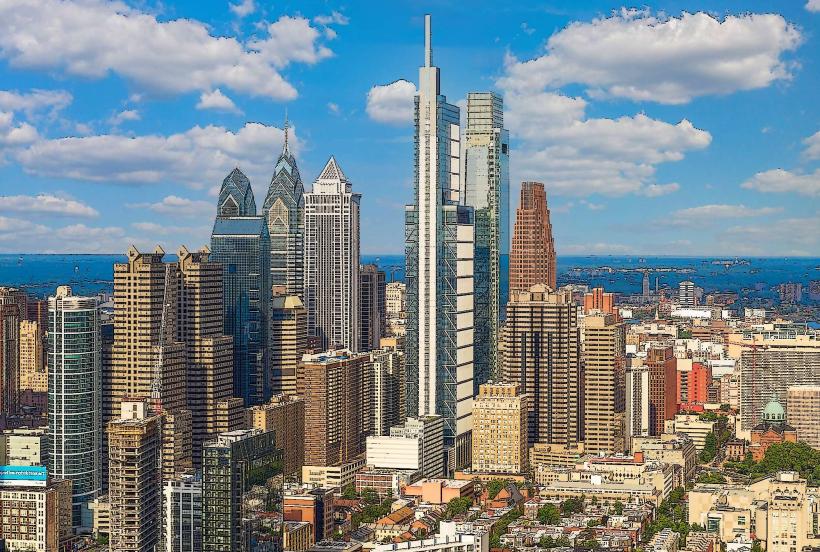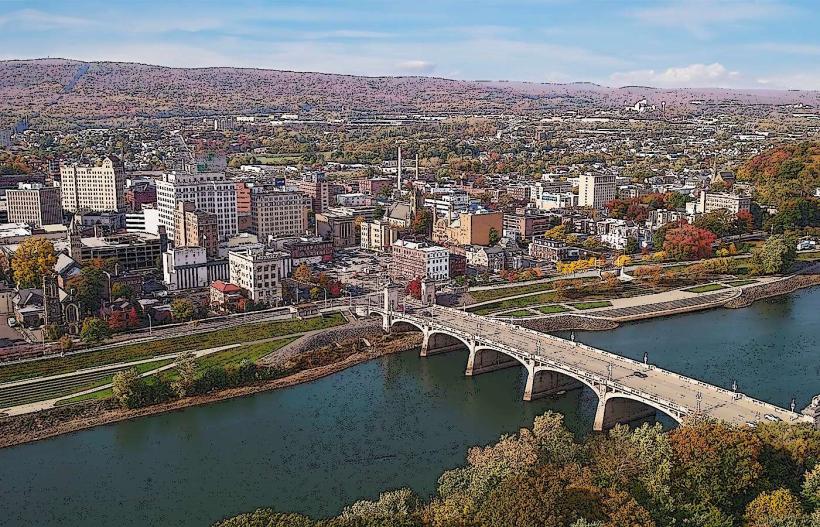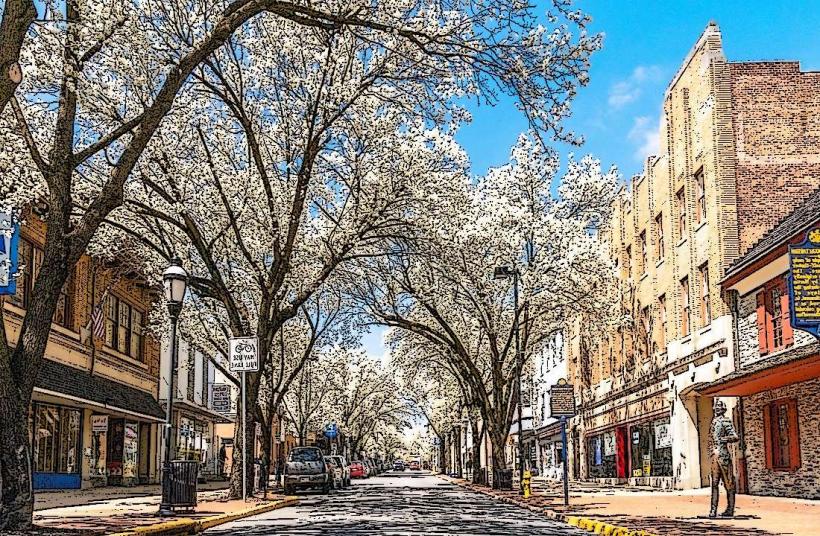Information
Country: USA PennsylvaniaContinent: North America
Pennsylvania, North America
Geography and Location
Pennsylvania is situated in the northeastern and Mid-Atlantic regions of the United States. It covers an area of about 46,000 square miles, making it the 33rd largest state by area. The state’s terrain is varied and includes parts of the Appalachian Mountain range, which runs diagonally from the southwest to the northeast. The Allegheny Plateau covers much of the western and northern parts of the state, characterized by rolling hills and forests. The eastern portion of Pennsylvania lies within the Atlantic Coastal Plain and the Piedmont region, offering flatter, more fertile lands.
Major rivers include the Delaware River along the eastern border, the Susquehanna River running through the central part of the state, and the Ohio River to the west. Pennsylvania also has several lakes, both natural and man-made, contributing to its water resources.
The state is divided into three general geographic regions:
The Ridge and Valley region characterized by long parallel ridges and valleys,
The Allegheny Plateau with more rugged terrain and forests,
The Piedmont and Coastal Plain areas with rolling hills and fertile soil.
Climate
Pennsylvania experiences a humid continental climate with four distinct seasons. Winters are generally cold, with temperatures often dropping below freezing and regular snowfall, especially in the northern and mountainous areas. Summers tend to be warm and humid, with temperatures ranging from the mid-70s to low 80s Fahrenheit on average. Rainfall is fairly evenly distributed throughout the year, supporting agriculture and natural vegetation.
Western parts of the state, including cities like Pittsburgh, tend to have slightly milder winters than the northeast. The mountainous regions, especially in the central and northern parts of Pennsylvania, experience cooler temperatures and higher snowfall.
Population and Demographics
Pennsylvania is one of the most populous states in the U.S., with a population exceeding 12 million people. The population is diverse, with a mix of urban, suburban, and rural communities. Major population centers include Philadelphia in the southeast, Pittsburgh in the southwest, and the Harrisburg-Carlisle area in the central part of the state.
The state has a rich cultural heritage, with significant communities descended from German, Irish, Italian, Polish, and African American backgrounds, among others. The demographic distribution reflects both historic immigration patterns and more recent economic shifts.
Economy
Pennsylvania’s economy is broad and diversified. Historically, it was known for heavy industry, particularly coal mining, steel production, and manufacturing. Cities such as Pittsburgh became centers of steel and manufacturing, while the coal regions in the northeast powered much of the state’s and nation’s industrial growth.
In recent decades, the economy has shifted more toward services, healthcare, education, finance, and technology sectors. Agriculture remains important, especially in the rural central and eastern parts of the state, producing crops like corn, soybeans, and dairy products.
Energy production is still significant, with natural gas extraction from the Marcellus Shale formation playing an increasingly important role. Pennsylvania is also a producer of electricity, utilizing coal, natural gas, nuclear, and renewable sources.
Transportation infrastructure includes a dense network of highways, railroads, and airports facilitating commerce and connectivity within the state and beyond.
Government and Administration
Pennsylvania’s government is based on the state constitution and consists of three branches: executive, legislative, and judicial.
The executive branch is led by the governor, who is elected every four years.
The legislative branch is bicameral, consisting of the Pennsylvania State Senate and House of Representatives. These bodies create state laws and control the budget.
The judiciary includes a system of courts, with the Pennsylvania Supreme Court being the highest.
The state is subdivided into 67 counties, each with its own local government responsible for public services, law enforcement, and administration.
Education
Education is a significant focus in Pennsylvania, with an extensive public school system serving students from kindergarten through 12th grade. The state also hosts numerous higher education institutions, including public universities, private colleges, and community colleges. Pennsylvania’s universities are known for their research contributions and diverse academic programs.
Vocational training and workforce development programs are available to support industries and help maintain a skilled labor force.
Environment and Natural Resources
Pennsylvania’s natural environment is varied and includes extensive forests, wetlands, rivers, and wildlife habitats. The state has worked to preserve many of these through state parks, forests, and conservation areas.
Forests cover roughly 58% of the state, providing timber and supporting biodiversity. The Appalachian Mountains contribute to rich ecosystems and outdoor recreational opportunities such as hiking, fishing, and hunting.
Water resources are abundant, with major rivers supporting ecosystems and providing water for municipalities, agriculture, and industry.
Environmental challenges include managing the impacts of mining, industrial pollution, and urban sprawl, with ongoing efforts toward sustainable development and conservation.
Transportation
The state’s location makes it a key transportation hub. Pennsylvania has a vast highway system, including several major interstates connecting cities internally and to neighboring states. Railroads continue to be vital for freight transportation, and the state also has several commercial airports supporting domestic and international travel.
Public transit systems operate in major urban centers, including bus and light rail networks.
This detailed profile covers Pennsylvania’s geography, climate, population, economy, government, education, environment, and transportation without focusing on specific landmarks. If you need information on any particular aspect in even greater detail, just let me know.




























